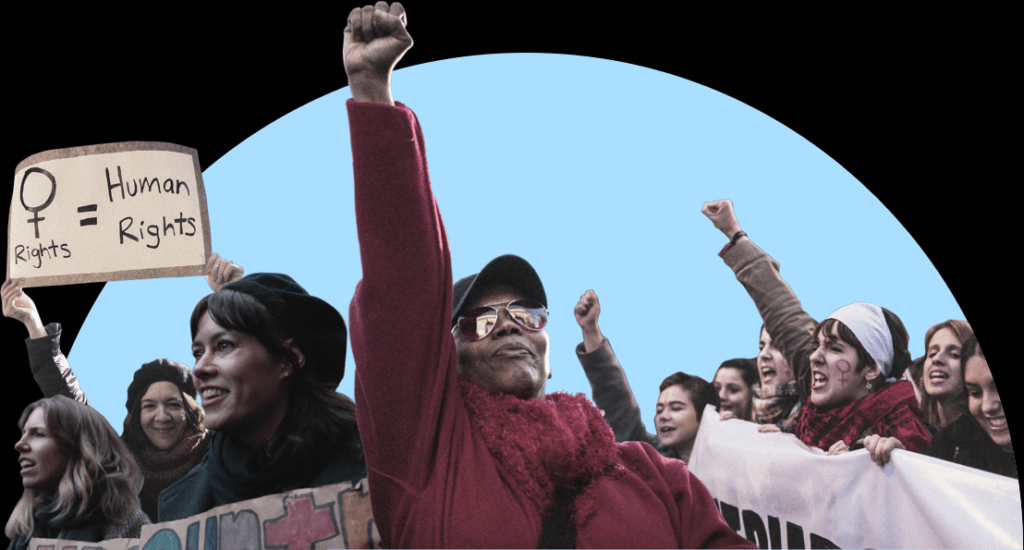“Gender is not an easy conversation to have…Because thinking of changing the status quo is always uncomfortable.” Ms. Chimmamanda Ngozi Adichie, Nigeria
What an experience – for about 6 hours on July 21st, 2020, I was glued to a computer, or phone, to listen in on the Multi-stakeholder Hearing, one of 3 members of IIWR-MB. It was remarkable, as thousands around the world heard, saw, and could exchange comments with an amazing group of women and gender diverse individuals.
It was done UN style, but in the “new” mode of virtual participation. The speakers were at the UN (New York), or in their home countries (and there was global representation!), and the audience was all over the world. There was translation: Arabic, English, French, Russian, Spanish and Chinese. ECOSOC accredited organizations could have 3 representatives each, so Teruni Walaliyadde, Jessica da Silva and myself were in the virtual audience. Sure there were some technical glitches, but basically things ran pretty smoothly. Although the day was jam packed, I will highlight just a few of the presentations that touched me.
As an introduction, Tijjani Muhammad Bande, the President of the UN General Assembly spoke first, commenting “After its adoption, 25 years ago, the Beijing Declaration and Platform for Action remains the most comprehensive and transformative global agenda for the achievement of gender equality. We have made some progress. There are more girls in school than ever before, and between the years 2000 – 2017 the global maternal fatality rate declined by 38%. However, in efforts to prevent the spread of COVID-19 schools have closed and essential resources for women’s health have been redirected towards the pandemic response. Moreover, women have been disproportionately burdened by a significant uptick in unpaid care work and the rates of gender-based violence have risen at an alarming rate. We simply cannot allow the COVID-19 virus to threaten the lives and future of women. The needs of women and girls must be central to both rapid-response and long-term recovery planning. Indeed, women should be included in every decision-making fora.
Gender equality is everybody’s responsibility: we need to amplify the voice of every girl and facilitate women’s leadership in all arenas.”
Some of the points raised during the call that struck me included:
• There was a focus on promises made in Beijing but know we have to address underlying issues and there is an urgency for action.
• Violence in schools, normally think of physical, but schools must be safe – many girls globally are pregnant and can’t go to school. Overturn the rule that pregnant girls couldn’t go to school
• Integrated strategies, based on lived experience – environmental damages, eg. 3.4 billion dollars damage from hurricane Dorian. Climate Change impacts our people, our land our future.
• Korea, have required women’s participation. Very effective impact.
• Sierra Leone changing early marriage. Male engagement strategy very important. Shifting gender norms
• Tanzania is giving direct resources to young people, and have them included in decision making processes. Bridging inequalities and challenges in demographics of young people. Laws, programs to unleash potential, unlock their knowledge, strengthen their skills, trust judgement.
• Argentine knows that instruments are very important to dismantle structural inequality.
• Armenia is working on political dialogue. Focus is on democracy and non violence. Free from violence. Need for public solidarity to support.
• COVID-19 amplifies inequalities so need to look at gender budgeting as a critical tool for ensuring recovery promotes gender equality. Significance of unpaid work, care work. Paid economy is underpinned by unpaid economy. Women do vastly more 75%, so less time for paid work. Looking at ways policy impacts paid and unpaid economy. Impact to build back better, as long as income increases, person who brings in money has more say as to how it’s spent. Impact on different groups of women and men. Disability, race etc., ie intersectionality.
It must be noted that the work of IIWR-MB and the Feminist Response to COVID-19 certainly reflects many of the ideas, and recommendations put forward on this call. Why not check it out, and see how you can join the campaign and take action to Build Back Better?

